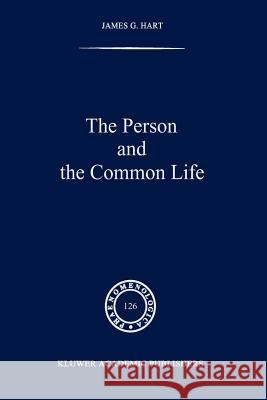The Person and the Common Life: Studies in a Husserlian Social Ethics » książka
The Person and the Common Life: Studies in a Husserlian Social Ethics
ISBN-13: 9789048141579 / Angielski / Miękka / 2010 / 488 str.
This Husserl-based social ethics claims that the properly philosophical life -- i.e. one lived within the noetic-noematic field -- is not cut off from action. Indeed, the ethical and political dimensions of the person are disclosed through various reductions. At the passive-synthetic level as well as at the higher founded levels of personal constitution a basic sense of will emerges, the telos of which is a godly intersubjective self-ideal. This truth of will' is inseparably an ought' and an is' involving moral categoriality as a way of letting the good of others be part of one's own. Both moral categoriality and the polis actuate the latent first-person plural dative of manifestation which emerges with a common world. Thereby they actuate also senses of the common life which can develop to community as a higher-order person. This leads to a eutopian anti-statist theory of the polis and common good which has affinity with some communitarian-anarchist and Green' views.











